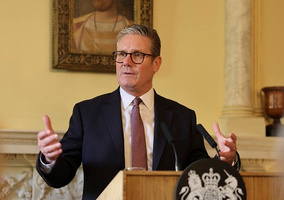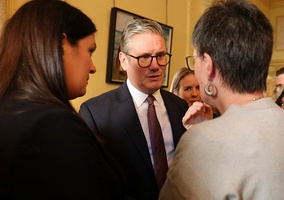It goes without saying that civil society is an engine for enormous good in the UK – for many who engage with it or benefit from its support, its activity is priceless. But therein lies a problem.
In the absence of the price signal that exists in the private sector, we’re not very good at putting an economically recognisable value on civil society. And the unspoken nature of much of what it does too often results in it being taken for granted.
That matters not for some vainglorious reason of recognition, but because of the barrier it creates to collectively making more of the power of charities, community groups and other purpose-driven organisations to contribute to a better Britain.
Too much remains hidden
In truth, much of what civil society does is present in official government data. But its activity is spread across sectors and industries in a way that makes it impossible to separately identify its combined contribution. And too much remains hidden entirely.
Most crucially, one of civil society’s most valuable inputs – the time and talent of millions of volunteers each year – is simply not counted. To the extent that estimates of the sector’s value do exist, they represent an undervaluation of uncertain but inevitably massive magnitude.
As a result, civil society is too often overlooked – viewed more as a lowest cost deliverer of public services than as a crucial partner in shaping the future of the country.
Undervalued and underutilised
This underrepresentation means civil society is also underutilised. Charities and community organisations have unparalleled insight into the realities of life across the UK and the ways in which centrally determined policies play out on the ground.
Yet, despite civil society’s role in representing and supporting communities that the government can struggle to reach, its practical expertise goes unheard. As a result, policies are misaligned and resources misallocated.
Bring all that together and what emerges is a self-perpetuating cycle that undervalues civil society, excludes it from the discussions it needs to be in and, ultimately, serves as a brake on the scale of good it can deliver.
Satellite account
The new government’s plans for a Civil Society Covenant provide an opportunity to change perceptions, reform relationships and so release more of civil society’s potential. But truly breaking the doom loop requires fixing the valuation problem too.
That’s where recent work from Pro Bono Economics and the Economic Statistics Centre of Excellence provides encouragement. Prompted by the Department for Culture, Media and Sport, the two organisations have outlined the practical means by which a new “civil society satellite account” might be created.
Such an account would follow the examples that already exist in relation to tourism and the environment to produce an official quantification of civil society that would provide visibility and a base for more evidence-based decision-making.
The process is far from straightforward. But the feasibility study provides two potential routes which could deliver a civil society satellite account within the next two years.
Either option would allow civil society’s activity to be measured, valued, and integrated into policy decisions that affect millions of lives. And it would add weight to the prime minister’s pledge to ensure that civil society sits alongside the public and private sectors as an equal partner.
We may not always be able – or indeed want – to put a price on what charities, community groups and other parts of civil society do for our citizens and our country, but that shouldn’t mean that we don’t value it appropriately.












